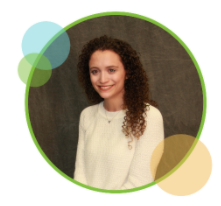Parenting an Anxious Child by Melissa Maranzano, MA
Parenting a child with anxiety is challenging. When our children are anxious, we often become anxious ourselves. Our minds race with questions like, “Do I let my child stop doing everything that makes them feel anxious? Do I push them to keep going and just get over it? Is this my fault? At what point should I seek professional help?”
First, you should take a deep breath and try to be a calm presence for yourself and for your child. An anxious parent will not calm an anxious child.
Next, here are some things you should know:
It is not your fault. According to the CDC, over 7% of children ages 3-17 have a diagnosis of anxiety. That is 4.4 million kids.
There is help and advice available from school counselors, pediatricians, and mental health professionals. Reach out and ask for help. Professionals can provide children with skills to help them manage their symptoms and improve their lives.
A diagnosis of anxiety in childhood, does not necessarily mean a lifelong battle with anxiety. But if they do have anxiety later in life, the sooner they learn the skills needed to manage it, the easier their life will be.
Now for the good stuff. What can parents do when they are in the trenches of the day-to-day anxiety battles with their child? Here are some helpful tips:
Be the calm in the room. Keep your own feelings in check when speaking to your anxious child. This is easier said than done but remaining a calm and steady presence will help them regulate their own emotions.
Model healthy ways of dealing with your own feelings and anxiety and tell your child about it. For example, tell your child, “I am going for a walk because fresh air and exercise help me relax after a stressful day.”
Do not punish your child for feelings and behaviors that stem from their anxiety. Punishment will not teach them how to manage their anxiety, it will teach them to hide it from you and cause increased anxiety.
Validate your child’s feelings and be understanding, but do not give power to those feelings. Encourage them to face their fears and express your confidence in them.
Encourage them to face their anxieties and teach them that the more they face them, the less power they will have.
Have a plan for things that cause anxiety in your child. How can they tell you they are feeling anxious in a public place (try a code word or text)? What things will they do to calm down (draw, play with a fidget spinner, etc.)?
Just as our children with anxiety must learn skills to manage and cope, so must we to help them. The programs at Innerspace Counseling provide solution focused treatment from an elite team of clinicians that care for and encourage your child to gain the skills they need to move forward. Family sessions are included to provide you with the support and tools that you need to care for your child. If you need help for your child contact Innerspace Counseling for a consultation.


